

We will continue to think collectively about the economic, cultural, and ecological processes that occur in the agropolitan area of the Llobregat delta, and what socially just practices we can imagine beyond or on the margins of capitalist logics.
It will be held over four days, on 10/24, 10/26, 11/11, and 11/16 with Yayo Herrero, Adrián Almazán, Fernando García-Dory (INLAND, Campo Adentro), Tornen les esquelles, Jaume Grau from SOS Baix Llobregat i l’Hospitalet, Asunción Molinos, and Carlos Monleón.
Organized by LaFundició
Registration: hola@lafundicio.net
With Adrián Almazán and Fernando García-Dory (INLAND – Campo Adentro)
Thursday, October 24 from 6 to 8 PM at Laurel 31 (c. Laurel, 31-33, La Florida, l’Hospitalet de Llobregat)
The transition to fairer ways of life that are compatible with the physical limits of the planet requires, among other things, structural changes in the urban metabolism or in modes of production. Beyond these transformations, which concern the material, changes of a symbolic order will also be necessary.
Culture and nature are not two separate spheres, but both affect and condition each other reciprocally. As a result, natures are historically produced, just as stories take place in and through nature.
Together with Adrián Almazán and Fernando García-Dory we will ask ourselves what imaginaries, what uses and customs, what forms of knowledge, or what languages are required to transform the way human beings relate to each other and to a nature of which they are also a part.
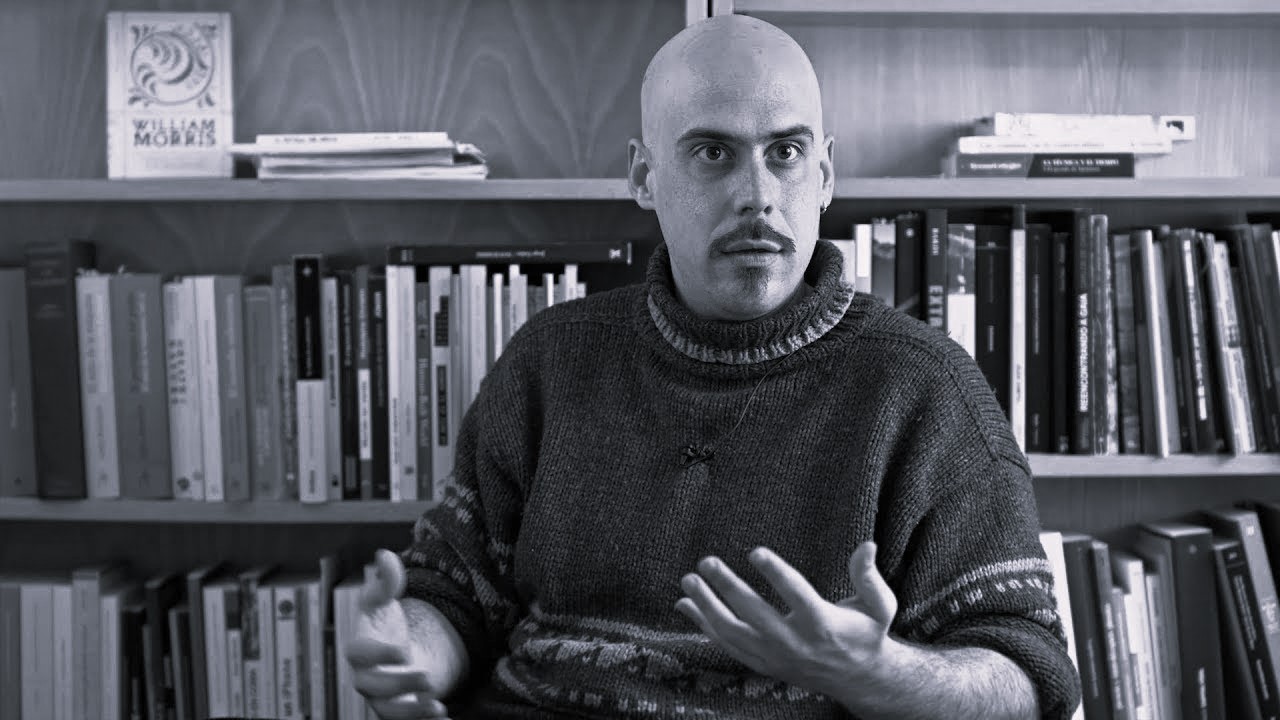
ADRIÁN ALMAZÁN
Adrián Almazán (Madrid, 1990) holds a doctorate in Philosophy (2018) and a degree in Physics (2014). He has a Master’s in Criticism and Philosophical Argumentation (UAM, 2015) and another in Physics of Condensed Matter and Nanotechnology (UAM, 2014). He is a professor of philosophy in the Department of Humanities: Philosophy, Language and Literature at the Carlos III University of Madrid, where he coordinates the research group in Technology and Ecological Humanities (THECO). He is a member of the Research Group in Ecological Humanities (GHECO) of the UAM. His publications include «Técnica y tecnología. How to talk to a technophile» (Taugenit, 2020) and «Decrecimiento. From what to how», with Luis González Reyes (Icaria, 2023). His fields of specialization are: Political Ecology, Ecological Humanities, Degrowth, Philosophy of Technology, Theories of the Common and Studies of New Ruralities.
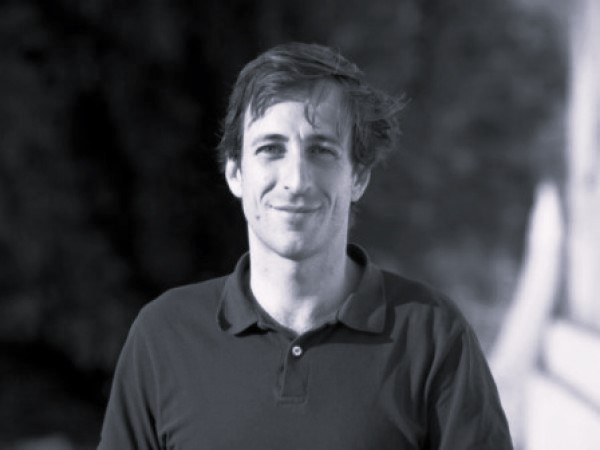
FERNANDO GARCÍA-DORY
(INLAND – Campo Adentro)
Fernando García-Dory, artist and agroecologist, founder of Campo Adentro. His work focuses on the relationship between culture and nature, as manifested in multiple contexts, from the landscape and the rural, to the desires and expectations related to identity, through the (global) crisis, utopia, and the potential for social change. Interested in the harmonic complexity of biological forms and processes, his work addresses connections and cooperation, from microorganisms to social systems, and from traditional artistic languages such as drawing to collaborative agroecological projects, actions, and cooperatives.
INLAND — Campo Adentro emerged in 2009 as a collaborative platform that works on art, territory, and social change. During its first stage (2010-2013) and taking Spain as an initial case study, INLAND was dedicated to artistic production in twenty-two towns in the country, to exhibitions and presentations at the national level, and to an international conference. This was followed by a period of reflection and evaluation, launching study groups on art and ecology, and a series of publications.
Today, INLAND focuses on the idea of communities of practice as a substrate for post-contemporary artistic and cultural forms, linked to the land. . Inland has a radio station, an academy, holds exhibitions, and produces cheese. It carries out urban grazing while having a publishing house and printing books. It is a consultant to the Commission of the European Union on the use of art for rural development policies, while promoting a Network of European Shepherds, a social movement to question those same sometimes anti-peasant agricultural policies. INLAND currently coordinates the «Confederacy of Villages” network and is part of the Lumbung Land Group. and has exhibited and worked with institutions such as the Istanbul Biennial; the Casco Art Institute (Netherlands); the Maebashi Museum (Japan); Serpentine Gallery, (London); Casa do Povo (São Paulo), the Centre Pompidou (Paris), SAVVY Contemporary (Berlin), and Documenta fifteen (Kassel).
With Tornen les esquelles
Saturday, November 9 in Les Cabasses (Ferran Puig s/n, Sant Boi https://goo.gl/maps/KJkehbhj7zQC9Dqg7)
Wool is currently a residual material. In this workshop, we will recover wool from flocks that graze in the Llobregat delta and learn to process it for use as raw material for artistic and artisan production.
We will recover wool from the sheep of Les Basses de Can Dimoni, the last flock that grazes in the Llobregat delta, and we will learn to process it to use it as raw material for artistic and artisan production. In a practical way, we will learn to wash the wool using the fermentation washing technique and to crimp it. With the transformation of the raw fiber of the fleece into wool, we will have a material ready to felt or spin. No previous experience is necessary.
We will learn about the situated search that is being developed within the framework of the Tornen les esquelles project, on how the wool from the flocks that graze in Collserola can model alternative futures with their environmental, artistic, material, and ethical implications.
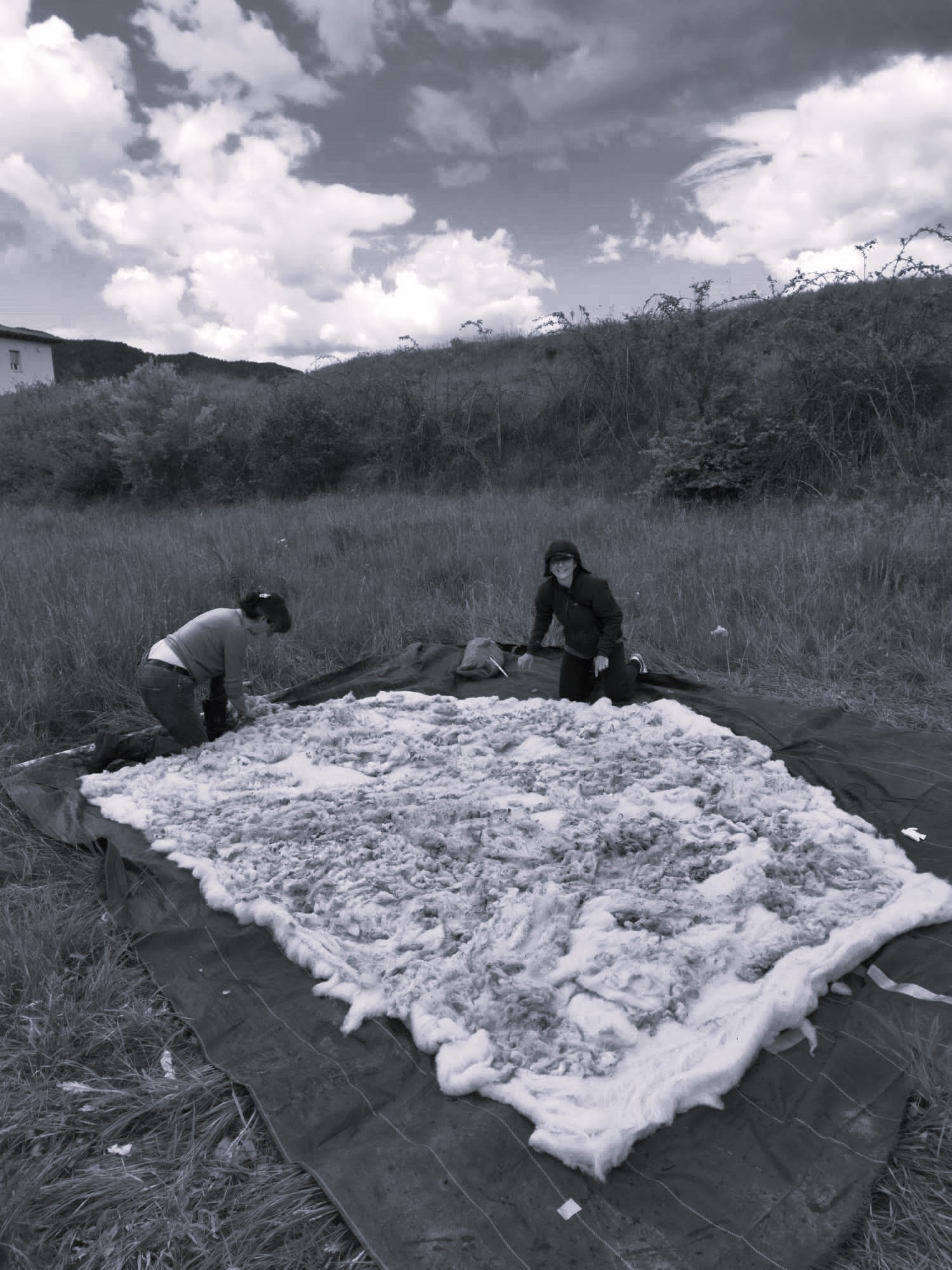
TORNEN LES ESQUELLES
Textile art collective created in 2022 with the mission of promoting pro-environmental behaviors in the Collserola Natural Park. They create tapestries and felt sculptures using wool from Collserola and through collaborative processes involving artists, shepherds, and the local community. This collaboration encompasses activities ranging from shearing and wool selection to artistic proposals aimed at preserving the local ecosystem and traditional forms of grazing. Tornen les esquelles acts as a creative center in which art and environmental protection are intertwined to promote a sustainable link between the community and the Collserola region.
With Yayo Herrero and Jaume Grau
Monday, November 11 from 10:30 AM to 1 PM at Espai Pomezia (c. Pins, 10, La Florida, l’Hospitalet de Llobregat)
We seem to be doomed to a major civilizational crisis resulting from various environmental, social, and human crises. Avoiding it would require urgently reorienting the economy towards a functioning compatible with the physical limits of the planet and with life, which in turn will require transforming the way resources are managed, as well as the kind of needs and desires that will have to be satisfied. These transformations will not be possible without new stories, representations, rituals, and imaginaries that are interwoven and mixed with the material production itself and with the task of caring for and reproducing life.
Changing the course of events requires formulating the right questions and debates. On this day, accompanied by Yayo Herrero and Jaume Grau, we propose to delve precisely into those debates, from reflection and also from concrete and situated action.
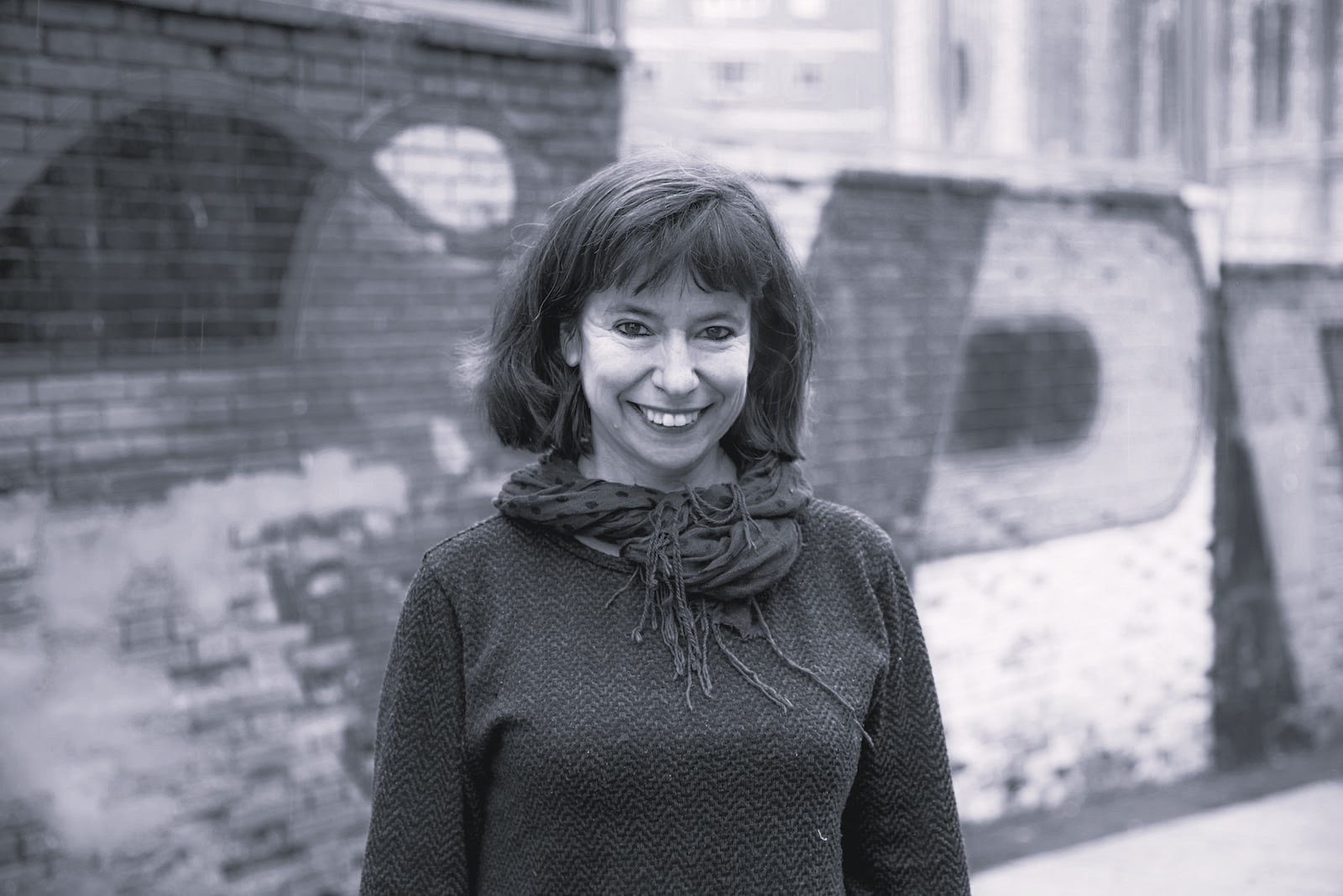
YAYO HERRERO
Photography by Cristina Crespo Garay
Anthropologist, engineer, professor, and ecofeminist activist. She is one of the most influential researchers in the ecofeminist and ecosocialist field at the European level. She holds a doctorate from the UPV in Society, Politics and Culture, a degree in Social and Cultural Anthropology, an Agricultural Technical Engineering degree, a diploma in Social Education, and a DEA in Educational Sciences.
She is currently a partner in the Garúa cooperative and a teacher at various Spanish universities. Spokesperson for the Transitions Forum. She is the author or co-author of more than thirty books and regularly collaborates with various media outlets.
For decades, she has combined her professional activity with active participation in social movements, especially the environmental movement. She is part of Ecologistas en Acción, an organization of which she was Co-Confederal Coordinator between 2005 and 2014. She was coordinator of the Complutense Center for Environmental Studies and Information of the General Foundation of the Complutense University of Madrid and general director of FUHEM. She regularly collaborates with various media outlets such as CTXT.
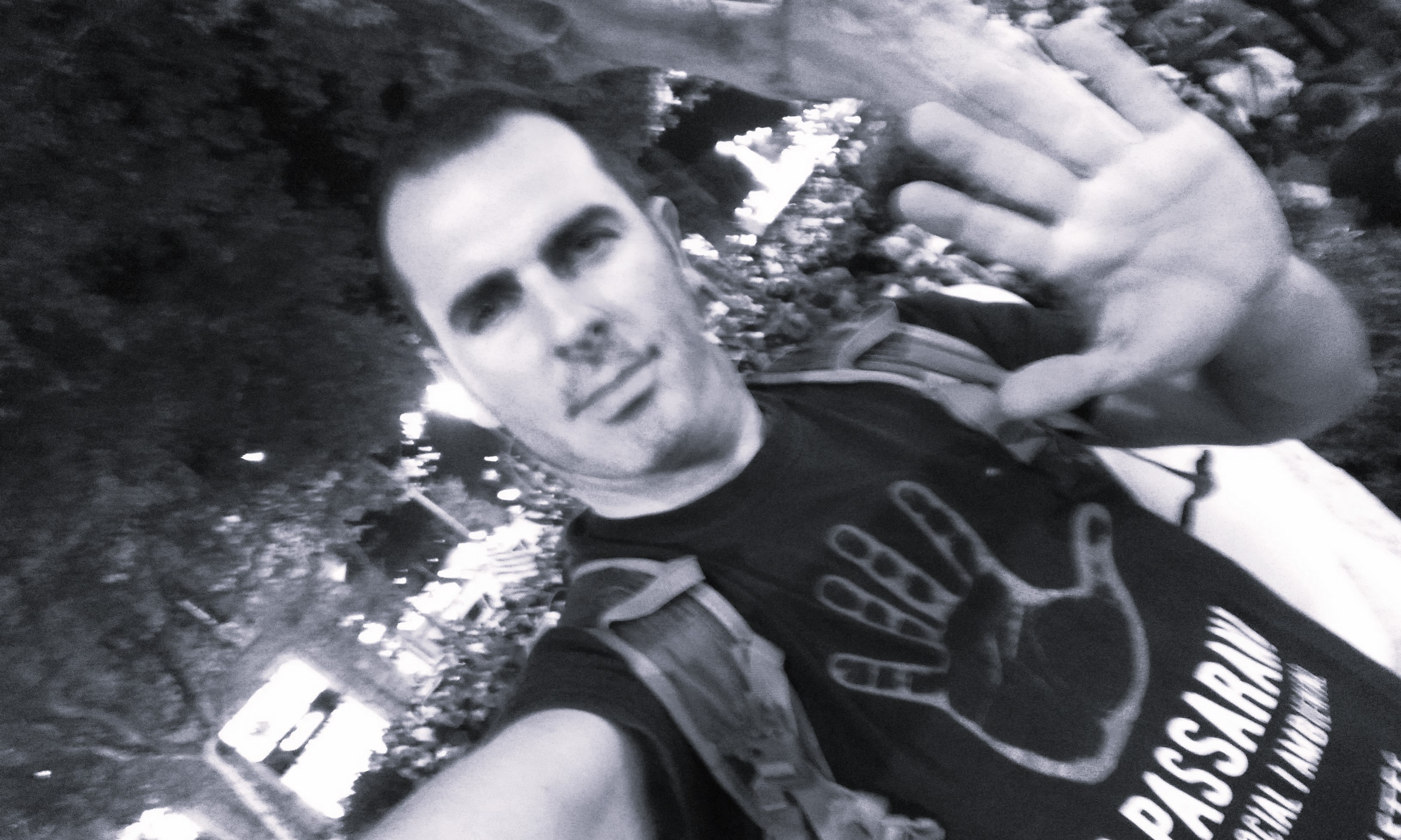
JAUME GRAU
ECOLOGISTES EN ACCIÓ i SOS BAIX LLOBREGAT I L’HOSPITALET
Degree in Biology (UB) and master’s degree in Political Ecology, Environmental Justice and Degrowth (UAB). He has worked in the Department of the Environment of the Generalitat de Catalunya, in the Servei de Parcs Naturals. Responsible for the area of Conservació de la Natura d’Ecologistes en Acció confederal from 2012 to 2015. Expert in international policies, he has participated in various conferences of the Parties of the Convention on Biological Diversity of the United Nations.
With Asunción Molinos and Carlos Monleón
Saturday, November 16 from 10 AM to 4 PM in Les Cabasses (Ferran Puig s/n, Sant Boi https://goo.gl/maps/KJkehbhj7zQC9Dqg7)
We will develop a prototype water plantation to refill and maintain the aquifers that supply the Parc Agrari del Baix de Llobregat.
Water plantations are rainwater harvesting systems and their redirection to the subsoil. They consist of shallow channels, dug directly on the ground, very similar to the work of preparing the garden, which is done when preparing for irrigation “a manta”.
The workshop will be divided into two phases, a theoretical and collective research phase and a practical phase to carry out the execution of the plantation itself. In the first phase, a theoretical presentation will be made on water plantations, their origin, their operation, their maintenance, etc. and a preliminary study will be developed to locate and choose the area or areas where it is desired to carry out the water plantations.
The main objective of the workshop is to generate a space for collective learning, where we can better understand the system of rainwater, groundwater, and the importance they have in the future of populations and agriculture.
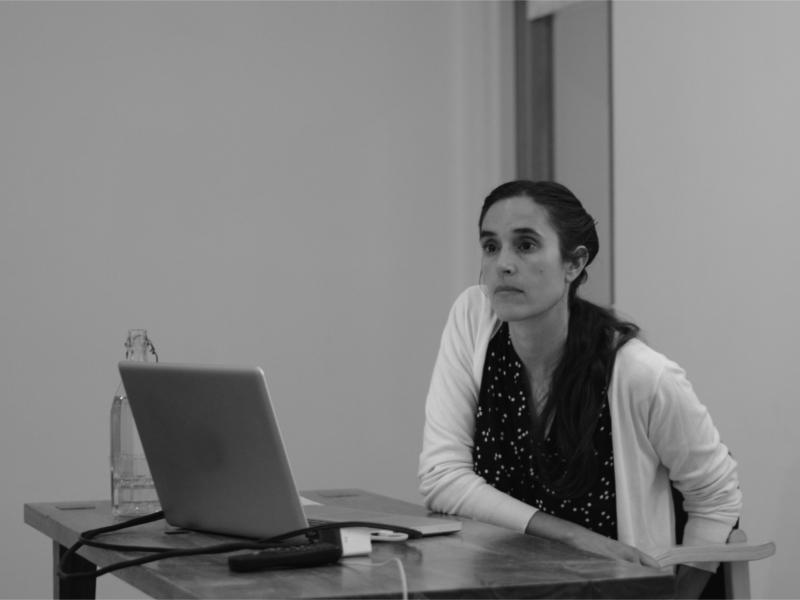
ASUNCIÓN MOLINOS
Photography: Nina Mikusk
Researcher and visual artist influenced by methods from disciplines such as anthropology, sociology, and cultural studies. The main focus of her work is the contemporary peasantry. Her understanding of the figure of the small or medium farmer is not limited to that of a food producer but also to that of a cultural agent, responsible both for perpetuating traditional knowledge and for generating new expertise to face current challenges. Her work is part of public collections and has been exhibited in numerous international and Spanish artistic spaces and institutions.
The activity is part of the “Fluvial Affectivity” project, promoted by Homesession (Barcelona), La Panera (Lleida) and Etopia (Zaragoza) with the support of the Daniel and Nina Carasso Foundation
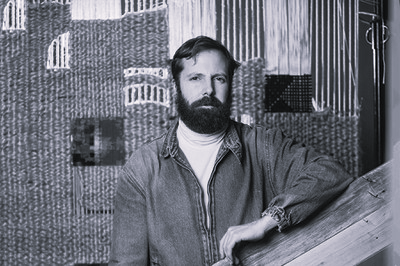
CARLOS MONLEÓN
Carlos Monleón works between various levels of sensation and body perception, from the (micro)biological to the performative and social. His main line of work follows the evolutionary mechanisms that originate in digestion and cognition and result in the distribution of bodily processes in multi-species networks and cybernetic metabolisms. This research materializes through a dialogue between fields and contexts, city/rurality, science/craftsmanship. In a predominantly collaborative way, he has developed projects in different international and Spanish artistic spaces and institutions.
As we reflected in previous editions, the urbanization of this territory and its natures has not been possible only through the crushing violence of capital —industrial, real estate, financial, global…—, it has also required the production of a desire for progress that has shaped the body and subjectivity of those who have come to inhabit it.
‘Progress’, understood as the growing advance towards a better and more developed state, is common to the stories of urban peripheries. The large infrastructures, shopping centers, or industrial and housing estates built on agricultural and natural areas have come to be perceived as tangible expressions of such progress. The stories of those people who emigrated —and still emigrate— from rural areas to the city are also usually told as stories of progress.
However, neither history, nor nature, nor people’s lives work that way, in a linear way. The processes we find in ecosystems and societies are not subject to a unidirectional impulse. Rather, they are the result of countless unexpected encounters and diverse assemblages, which unfold in countless directions, between heterogeneous sets formed by objects —material and immaterial— and living beings.
If we accept that the idea of progress is a phantasmagoria, we will have to assume that it will not be possible to return the delta to its original state either, among other reasons, because there would not be an Eden, an origin to return to, from which to begin to tell the things that have happened. What is left to us if we cannot progress or return to a better place? Perhaps we can aspire to establish here and now new and diverse symbiotic and cooperative relationships that, instead of being oriented to the accumulation of wealth —in the hands of a few— aim to care for and sustain life.
Organized by: LaFundició
More information and registration: hola@lafundicio.net